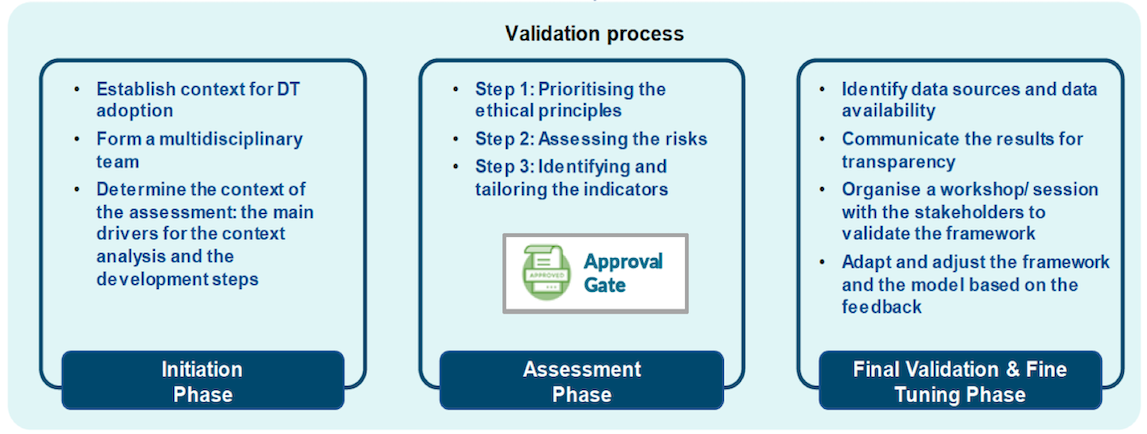The validation process will guide public administrators in the process of adopting disruptive technologies. The process consists of three main phases:
- Initiation Phase: This phase marks the beginning of the validation process and serves to gain a thorough understanding of the contextual background.
- Assessment Phase: The primary objective of this phase is to identify the ethical risks and impacts associated with the technology under consideration.
- Final Validation and Fine-Tuning Phase: The phase aims to ensure that the disruptive technology application (DTA) not only aligns with the adopters' requirements but also effectively addresses the ethical risks that have been identified.
The validation process is mainly related to the ex-ante validation approach of the RDT Indicators. However, it also can be adapted for ex-post evaluation purposes, with emphasis on particular stages, such as the assessment phase and the final validation and fine-tuning phase.

The initial phase allows adopters to lay the groundwork for the DT adoption process, by defining the context and purpose of adoption and forming a diverse team to assist during the process.
The assessment phase is focused on understanding the ethical impact and identifying the associated risks with the DT adoption. It looks at key drivers such as service type, specific DT, stakeholders, end-users, and usage frequency are used to tailor risk assessment to the particular context of the adopter.
Tools:
- Ethical Matrix card
- Risks and risk categories assessment card
- Identification and selection of indicators guideline (ETAPAS ptototype platform)
This phase also determines the feasibility and risk acceptability for ethical adoption, with reconsideration or abandonment if risks are too high.
The final validation phase aims to improve the effectiveness of the framework developed. Thus, the stakeholder and community feedback gathered through workshops is essential in identifying and addressing the framework’s gaps. Moreover, community involvement is encouraged throughout the DT adoption process.


